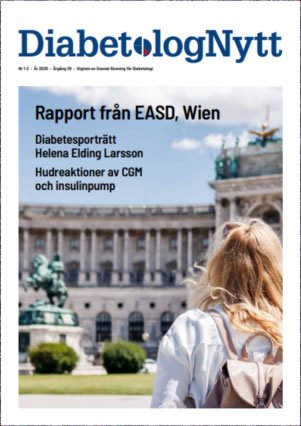By Kristina Fiore, Staff Writer, MedPage Today
LISBON — Whispered concerns about a higher risk of certain cancers linked with incretin therapies for diabetes have become more audible after a debate here between top researchers.
In the hot seat was Peter Butler, MD, of the University of California Los Angeles, who, with colleagues, recently published a paper in Gastroenterology that found higher rates of pancreatitis and pancreatic cancer in patients on either sitagliptin (Januvia) or exenatide (Byetta).
The findings were based on an analysis of data from the FDA’s Adverse Event Reporting System (AERS), which is known to have several limitations, as pointed out by debate opponent Michael Nauck, MD, of the Diabetes Center Bad Lauterberg in Harz, Germany.
”There will be a lot of reporting bias,” Nauck said during an interview with MedPage Today. ”If there is public awareness for certain things, then physicians and others will feel more inclined to report such events to the database.”
But Butler said the potential mechanism between the therapies and these types of cancer is biologically plausible.
”The problem is that this is a hormone that drives cellular replication,” Butler said during a press briefing. ”No other therapies [for diabetes] drive cellular replication.”
He said numerous animal studies have shown an increase in replication of cells in the duct that shuttles digestive juices between the pancreas and the stomach. As well, murine studies have shown an increased number of C-cell adenocarcinomas in the thyroid, he said.
But Nauck countered that not all of the animal studies thus far have been consistent, and pointed to an increased awareness of the potential link between exenatide and pancreatitis after an FDA warning, as the reason for a peak in reported AERS cases between 2007 and 2008.
The number of reported events has declined since then, he said.
In their paper, Butler and colleagues reviewed AERS data between 2004 and 2009, and found a six-fold increased likelihood of reported pancreatitis with exenatide or sitagliptin compared with control reports.
They also found a significant threefold greater likelihood of reported pancreatic cancer with either drug, as well as a four-fold greater likelihood of reported thyroid cancer with exenatide.
But given the limitations of the FDA data set, researchers said data from other sources still need to be analyzed before drawing any conclusions about the potential side effects of the drug class.
Nauck said randomized controlled trials would be a near-impossibility because the number of patients needed in each arm would have to be exceedingly large in order to have the power to detect true risk, since pancreatitis and pancreatic cancers are so rare.
Instead, researchers will need to assess large databases, potentially individual registries or combined ones, Nauck said.
Ulf Smith, MD, recent past-president of EASD, said the FDA and the European Medicines Agency are currently trying to find a way to link American and European databases — which may offer the kind of numbers needed to determine the credibility of this signal.
”I think we can all agree that this is an urgent priority,” Smith said during the briefing. ”Hopefully there will be a database that can answer these questions. Unfortunately, we are not there yet, but hopefully we will be in the not-too-distant future.”
Butler echoed those sentiments. ”It is important from these studies that we look carefully at the possibility,” of the link between the incretin therapies and these side effects.
”This does not establish that pancreatitis is caused by GLP-1’s,” he said. ”It simply raises the level of concern, and appropriate prospective studies are needed.”
Smith and Butler reported no conflicts of interest.
Nauck reported relationships with Novo Nordisk, Eli Lilly, sanofi-aventis, MSD, Novartis, AstraZeneca, Bristol-Myers Squibb, Takeda, and Boehringer Ingelheim.
From Medpage Today
Nyhetsinfo
www red DiabetologNytt
Publicerad: |2011-09-19|

